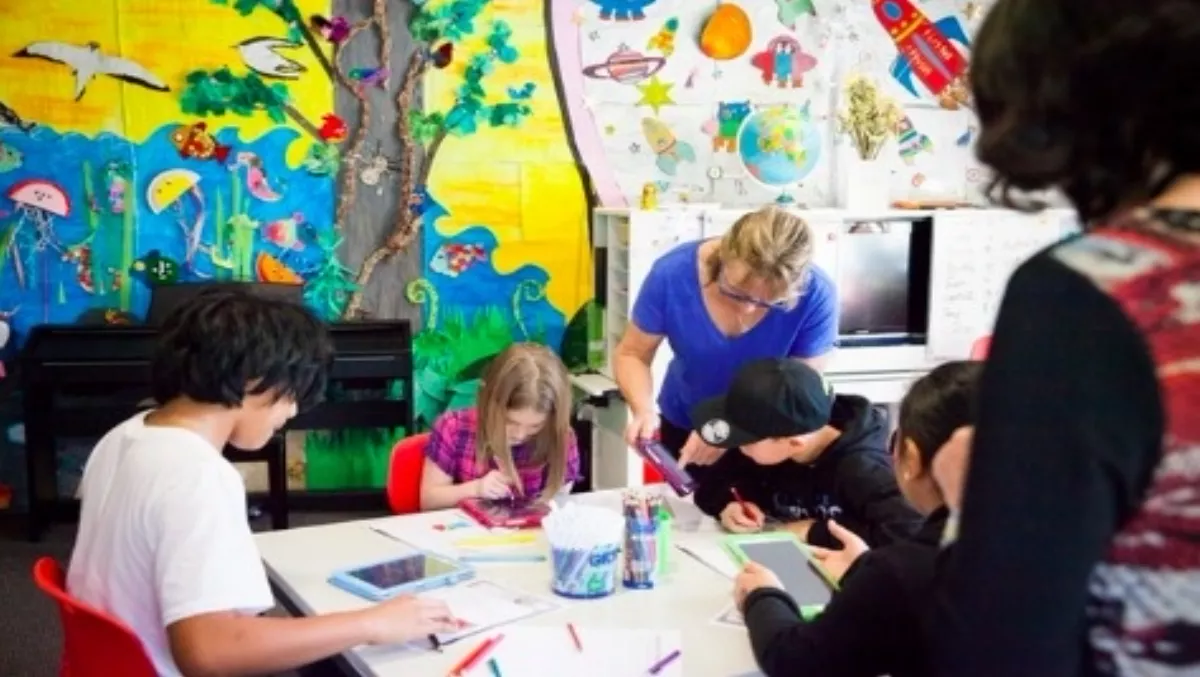
Tablets brighten students' lives at Ronald McDonald House school
Tablets are transforming the way children are learning at Ronald McDonald House's Auckland school, offering a more integrated, dynamic and fun learning experience for sick children and their siblings.
The tablets were donated by CodeBlue vendor partner HP. IT services and support company CodeBlue has a long term relationship with Ronald McDonald House Auckland, having previously raised funds for the facility and having donated equipment in the past.
The latest technology donations have proved real winners for both the students and teachers at the school.
Marion Nevin, a teacher with Northern Health School and the Ronald McDonald House Auckland Unit Leader, says the tablets provide an extra tool to enhance children's learning experiences.
The devices, which replaced a PC in another room which the students could use for research, are loaded with a range of apps and interactive learning games, stories, and YouTube to enable children to search for specific clips related to the learning topic.
"We are using them to expand and reinforce traditional learning," Nevin says.
"And for the children, it's also an escape. They love engaging with the tablets – honestly, it makes them want to be here even more.
Nevin says the school aims to provide a respite for children from the frequently harsh, upsetting and sad realities they are dealing with.
"We aim for brigh, light, engaging, fun and absorbing," she says. "The tablets are an important part of that.
She says the tablets are integral to the discovery learning approach of the school, which by neccessity is a flexible mix of unstructured and stuctured teaching, catering to a range of ages, abilities and stages of health.
"Discovery learning is a technique of inquiry-based learning that gives the children choices and allows them to lead the way in their own learning," Nevin says.
"It's a style that gives children much more freedom but they are still guided in their learning outcomes.
"The children use the tablets to research and discover answers to questions. And, frequently, they will bring us new questions based on their research that form the basis of a subsequent learning session.
The tablets are also used for students to record their findings and give presentations to classmates and for art protjects.
Nevin says the tablets are interactive and give flexibility and adaptability to any learning sitaution and can be used by younger children and older children, using different applications.
"Everything we do here is geared towards the children, who are often overlooked in the midst of a pretty stressful time," Nevin says.
"It's about making life better for the children – both those who are sick and those who are not. Everything we do and learn in the classroom feeds into something else, and the tablets definitely enhance that experience.


